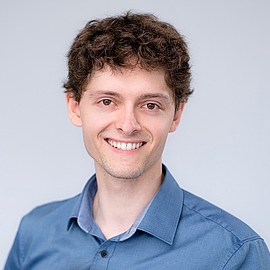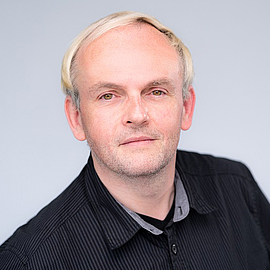Fotos: Johannes Paehr, Matthias Haak
Digital technologies for teaching
At vocational schools and universities, electrical engineering is one of the highly abstract subjects. Comprehending the content is a challenge for many learners. In order to be able to explain individual phenomena, learners develop their own ideas based on their prior knowledge or experience. However, these pre-concepts usually only cover special cases or imply wrong explanatory patterns. Universities must therefore provide their student teachers with the necessary competencies so that they can later correct pre-concepts in their everyday professional lives if necessary. This includes knowledge and experience with technologies that have a high (subject) didactic potential, not only in the Corona pandemic: Remote Labs, Augmented Reality (AR) and Virtual Reality (VR).
Learning-teaching processes at home
The Didactics of Electrical Engineering and Computer Science (DEI) group at Leibniz Universität Hannover is developing concepts for the use of new technologies in teaching and learning. Among them is an innovative learning-teaching concept for a course by L3S member Prof. Dr.-Ing. Bernardo Wagner in the field of control engineering. Students are asked to develop control systems during the exercise and to control them using model systems. The teacher is supported in carrying out the exercise by the participating student teachers, who thus become multipliers for innovative concepts. What makes this exercise special is that the model plants are part of a remote lab. This is necessary because the course is attended by over a hundred students, not all of whom can access the facilities in the lecture hall. In contrast, the Remote Lab offers all students the opportunity to control their solutions independently from home. In this way, students apply individually constructed knowledge and become aware of pre-concepts. There is even potential for expansion of the simulation environments: With VR glasses, several students can simultaneously perceive and interact with the plants in three dimensions.

Model facility of the Remote Lab (left) and in virtual reality (right).
Quality Offensive Teacher Education
Scientists at DEI continue to research the use of AR/VR in the field of digital learning in two projects funded by the German Federal Ministry of Education and Research (BMBF) as part of the Quality Offensive Teacher Education. Both technologies are already being used successfully in many areas of industry. In education, other scenarios are conceivable in addition to virtual remote labs. Particularly in electrical engineering, where physical phenomena such as the flow of electrons cannot be perceived directly, supporting visualizations offer didactic potential that can also be used to effectively counter pre-concepts.
In both projects, an interdisciplinary team is working on concepts for the use of AR and VR technologies in teacher training. If prospective teachers already use AR/VR in their studies, they will be well equipped for their complex day-to-day work and can update their knowledge of technical developments in the training professions themselves.
Together with the Institute for Didactics of Science (IDN) and the Leibniz School of Education (LSE), DEI is also setting up a learning workshop (Digilab) so that student teachers can try out digital learning units with new technology.
Contact

Matthias Haack, M. Ed.
Matthias Haack is a research associate in the department “Didactics of Electrical Engineering and Computer Science” (DEI). He conducts research on the activation of large cohorts with remote labs.

Johannes Paehr, M. Sc.
Johannes Paehr is a research associate in the DEI group. He conducts research in the area of adaptive learning systems based on eye-tracking and AR/VR technology.

Dr. Thomas N. Jambor
Thomas N. Jambor is a research associate in the DEI department. In the context of his habilitation, he is concerned with the constructivist-based design of learning-teaching arrangements.


